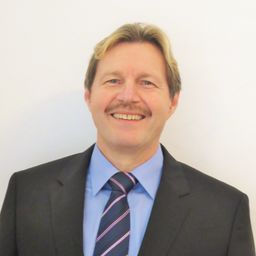
Bruno Michel received a Ph.D. degree in biochemistry and computer engineering from the University of Zurich, Switzerland and subsequently joined the IBM Zurich Research Laboratory to work on scanning probe microscopy and accurate large-area soft lithography. He then developed microfluidics, 3D packaging with interlayer cooling for sustainable data centers. Later, he worked on integration of IoT and wearable devices combining efforts that span from new sensing principles over multi sensor data fusion to edge artificial intelligence for wellbeing applications. He now focusses on accelerated materials discovery, deep search tools, and data integration platforms for sustainability applications. Bruno Michel is an IEEE Fellow as well as a member of the US National Academy of Engineering and the IBM Academy of Technology
Sessions in which Bruno Michel participates
- I3-Market Project Meeting Part 1 Croke Park Conference Centre - Suite 688/689
- 9:00 AM - 10:30 AM | 1 hour 30 minutes
- There is a growing ...
- Private Meeting
- I3-Market Project Meeting Part 2 Croke Park Conference Centre - Suite 688/689
- 11:00 AM - 12:30 PM | 1 hour 30 minutes
- There is a growing ...
- Private Meeting
- I3-Market Project Meeting Part 3 Croke Park Conference Centre - Suite 688/689
- 1:45 PM - 4:30 PM | 2 hours 45 minutes
- There is a growing ...
- Private Meeting
- I3-Market Project Meeting Part 4 Croke Park Conference Centre - Suite 688/689
- 5:15 PM - 6:30 PM | 1 hour 15 minutes
- There is a growing ...
- Private Meeting
- Perspectives and Horizons for Data Marketplaces: Focusing on Interoperability and Open-Source Solutions for the Internet of Things. Part I Croke Park Conference Centre - Canal Café
- 9:00 AM - 10:30 AM | 1 hour 30 minutes
- Workshop
Sessions in which Bruno Michel attends
- The challenges to foster clean energy transition, resilience and energy security in Europe Croke Park Conference Centre - Nally Suite
- 1:00 PM - 2:15 PM | 1 hour 15 minutes
- Panel
- IoT and Edge Computing impact on Green Deal Croke Park Conference Centre - Davin Suite
- 1:00 PM - 2:30 PM | 1 hour 30 minutes
- This session will identify the high-level objectives of and challenges imposed by the EU Green De...
- Panel
- IoT for Climate Change Croke Park Conference Centre - Nally Suite
- 2:30 PM - 3:45 PM | 1 hour 15 minutes
- The Internet of Things (IoT) is emerging as a powerful enabler in many application domains, such as water and energy ma...
- Panel
- GIOTS Paper Presentation S1.3. IoT Applications, Services and Real Implementations Croke Park Conference Centre - Suite 681/682
- 4:15 PM - 5:30 PM | 1 hour 15 minutes
- Chair:
- Paper Sessions
- GIoTS Opening Ceremony Croke Park Conference Centre - Hogan Mezzanine 1
- 5:30 PM - 6:30 PM | 1 hour
- Talk
- Welcoming Reception hosted by the Lord Mayor of Dublin Alison Gilliand Croke Park Conference Centre - Hogan Foyer & Suite
- 7:00 PM - 8:00 PM | 1 hour
- GIOTS Paper Presentation S4. IoT Enabling Technologies and End-user and Human Centric IoT, including IoT Multimedia, Societal Impacts and Sustainable Development Croke Park Conference Centre - Suite 681/682
- 1:45 PM - 4:00 PM | 2 hours 15 minutes
- Chair: Sebastian Hauschild seba...
- Paper Sessions
- Future European platforms for the IoT and Edge: Meta Operating Systems Croke Park Conference Centre - Hogan Mezzanine 2
- 5:15 PM - 6:30 PM | 1 hour 15 minutes
- The call topic “Future European platforms for the Edge: Meta Operating Systems” targeted for the next generation of ...
- Panel
- Advancing at the Edge of Convergence - Future Trends, Challenges and Standards with the Next Generation Internet of Things (NGIoT) Croke Park Conference Centre - Suite 679/680
- 9:00 AM - 10:30 AM | 1 hour 30 minutes
- This session will feature the IoT p...
- Workshop
- Challenges of IoT and Edge Computing for European Industry Croke Park Conference Centre - Hogan Mezzanine 1
- 9:00 AM - 10:30 AM | 1 hour 30 minutes
- The move to the Far Edge will have huge economic potential by leveraging a local, distributed comput...
- Panel